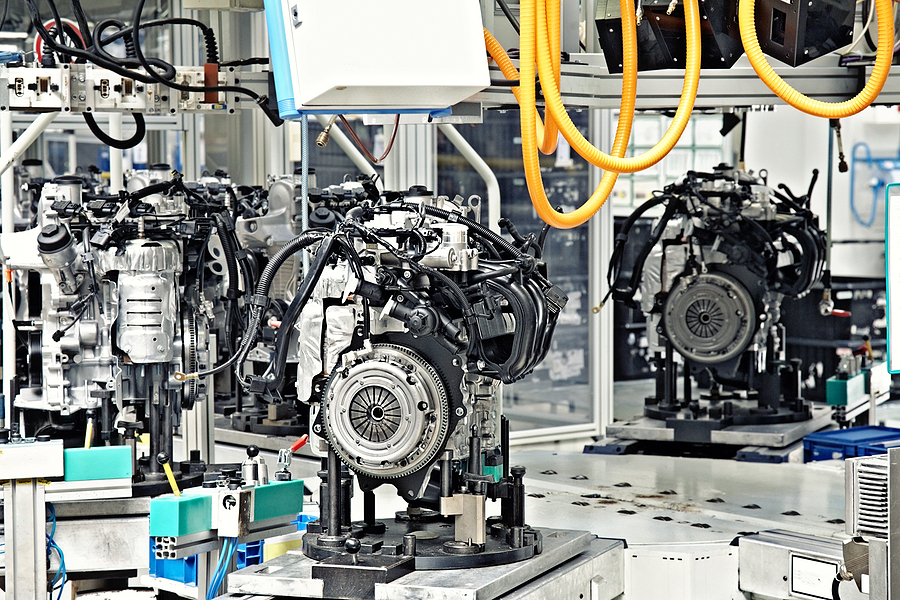The humming heart of your car, nestled beneath the hood, epitomizes the soulful synergy that propels you on highways and in city streets. Yet, when that heartbeat falters and the storm of engine troubles hits, it’s essential to know the lay of the land. Whether you’re the operator of a trusty old sedan, the proud owner of a classic convertible, or the one who turns the key on a newly minted machine, understanding the potential financial gale of car engine replacement costs is more than a precaution—it’s a necessity.
For those who have been through many commutes and those who love the feeling of a new car, the process of engine replacements can be overwhelming. This detailed guide helps you understand the costs involved and provides strategies to save money when your car’s engine needs repair.

Understanding the Variables of Engine Prices
The price one pays for an engine’s renewed vigor is as varied as the vehicles it powers. It’s a sum as influenced by the type of engine—be it a robust V8, an innovative flex-fuel engine, a standard diesel, or the economic elegance of a 4-cylinder—as it is by the hands that fit it into your car. Labor, engine complexity, and the eternal debate of used versus new engines are compass points you must chart before setting sail for the garage.
Type of Car and Engine Size
A mass-produced vehicle seeks the sweet spot in the bell curve of cost and availability, which typically translates to a moderate engine replacement fee. In contrast, luxury and niche market vehicles often spike the price, a testament to their rarity and the craftsmanship required for their engines.
Labor Costs and Complexity
An engine swap is a delicate dance, with numerous components and systems entwined with the heart of your car. The more intricate the machinery, the higher the labor costs soar. Make, model, and year play a significant part, with newer advanced vehicles commanding sophisticated engine management systems that need expert hands and more time to manage.
New vs. Used Engines
The age-old debate isn’t devoid of wisdom. A new engine is pristine, assured of quality, but brand newness radiates steep price tags. Used engines, while more affordable, cast uncertain shadows on their history and preservation. The choice unfurls when assessing your vehicle’s future and your purse’s present.
The Cost of Engine Replacement
The financial challenges you encounter may range from a minor issue to a major crisis, depending on the scale of your car’s engine problem. The average replacement cost can lay between the cinders of $4,000 and the glowing embers of $8,000, flaring higher for premium lineages or the latest tech marvels.
A Wide Cope
The significant disparity between your potential budget and desired expenditure range is substantial. Basic replacements may fit the lower price range, while the premium high-end encompasses luxurious and sophisticated engine models, like those featured in sports and high-performance vehicles.
Comparative Sampling
Engine replacement costs paint a rich mosaic across the automobile industry, chiseled by factors such as the brand’s reputation, dealership or independent garage selections, and even regional economic disparities. You might notice the refined heart of a Honda, which stands in contrast to the price tag of a sturdy Ford, or the sophistication of an Audi that surpasses both in the realm of engine replacement finesse.
Incidental Influences
The impact of costs extends beyond the car model to the location of the garage you choose. Getting repairs done in urban areas can be pricier due to the economic environment, whereas an independent mechanic’s shop might provide a more cost-effective solution.
Tips for Saving on Engine Replacement
Knowledge plays a vital role in successfully navigating the myriad challenges that come with owning a car. Whether it’s understanding the intricacies of vehicle maintenance or making informed decisions about engine replacements, having the right information at your disposal can save you time, money, and unnecessary stress.
Regular Maintenance
The most enjoyable journey is one where you don’t have to worry about the expense of replacing the engine. By regularly changing the oil, checking the cooling system, and listening closely to the engine, you can postpone – or even avoid – the eventual engine wear that leads to expensive repairs.
Salvage Yards and Used Engines
“Pre-owned” doesn’t necessarily mean inferior quality. A carefully maintained used engine, salvaged from a vehicle, can breathe new life at a much more economical cost than a brand-new one. It’s a viable choice to explore, as long as one assesses its potential before encountering any mechanical issues.
Quotes and Comparisons
In moments of desperation, a single quote can be a beacon of hope. However, seeking quotes from various sources can unveil a range of prices, both surprising and delightful. This diversity creates a tapestry from which the most favorable cost can be celebrated.
Navigating the DIY Route
Having a precise approach to adding salt and a methodical mindset, choosing the DIY path sparks both excitement and financial benefits. Selecting engine replacements outside of professional services could reduce expenses by fifty percent, though not without potential risks and time commitment.
When Engine Costs Exceed the Value of the Car Itself
Stopped by the reality of a repair expense that exceeds the market value of your vehicle, it’s a tough financial situation. When cars are bound for the scrapyard, exploring alternatives beyond regular maintenance can shift the discussion to different solutions.
Salvage Sales and Total Loss Vehicles
When repair costs exceed the value of the vehicle, insurance companies usually step in. When cars are considered total losses, salvage yards provide an alternative solution. They offer a quick payout option, simplifying the process of evaluating cars and determining repair costs. For the under-insured, the scrapyard might be the final destination. It’s a place where the engine, and sometimes the whole vessel, ventures from the murky depths to salvage what it may.
In Summary
In summary, understanding the landscape of engine replacement is key to navigating the often complex and costly world of vehicle maintenance and repair. By being informed about the type of engine, labor costs, and the pros and cons of new versus used engines, you can make decisions that align with both your vehicle’s needs and your financial situation.
Additionally, exploring cost-saving strategies like regular maintenance, considering used engines from salvage yards, and comparing quotes can make a significant difference in managing these expenses. Remember, knowledge is your most valuable tool in ensuring that your car remains a source of joy and adventure, not financial stress. Stay informed, stay curious, and drive on!
Looking for a trustworthy auto salvage yard in Indiana that will provide the best possible price for your scrap vehicle? Contact Benjamin’s Junk Cars at 317-218-7133 to learn how it works when it comes to selling a totaled car for cash on the spot in Indianapolis. We provide free junk car towing, so all you need to do is call!
Related Posts:
The Top 3 Most Expensive Auto Repairs
Junk Car Parts With the Highest Scrap Value
Five Costly Mistakes Most People Make When Repairing a Broken Car Engine
